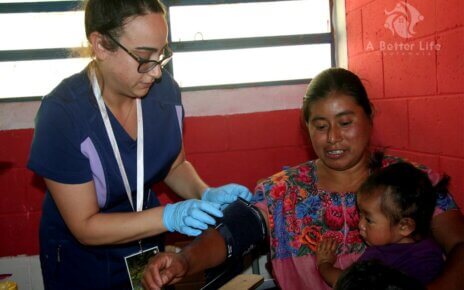The Faculty Association of Monmouth University (FAMCO) is working with University administration to negotiate proposed increases to the cost of healthcare for faculty. Bargaining sessions began on Wednesday, Sept. 14 and are ongoing as no compromise has yet been reached.
The proposition put forth by the University bears higher out-of-pocket costs for faculty and includes substantial premium hikes, additional deductibles, and increases to existing deductibles. Faculty union members argue that this plan is unsubstantial based on most employee incomes, noting that it could result in pay cuts for some faculty who only received a three percent raise in the last contract before pandemic inflation. Accordingly, they are bargaining for high quality and affordable healthcare that offers an expanded choice of benefits and lower premiums.
“There is no point in having health insurance if it doesn’t make healthcare affordable when we need to have it. We know the University can afford to support their employees with the kind of changes the faculty union is proposing,” explained representatives from the FAMCO action team.
“The faculty union has been sounding the alarm about escalating costs of healthcare for Monmouth employees even prior to the devastating rise in inflation that has negatively impacted so many faculty, staff and students in the midst of a pandemic crisis. Like other efforts that the University has been taking to protect our community during the crisis of COVID, we should also be taking proactive steps to protect our community from a crisis of escalating costs of healthcare that hurts our employees physically, mentally, and financially,” said Johanna Foster, Ph.D., Helen Bennett McMurray Endowed Chair of Social Ethics in the Department of Political Science and Sociology and FAMCO President.
In his Convocation address, Patrick Leahy, Ed.D., President of Monmouth University, cited health and wellness as one of his four major priorities for the University. Regarding employee healthcare, he explained that Monmouth would have faced more than a 20 percent overall increase in premiums if the University chose to remain fully insured. Moving to self-insurance reduced this increase to 11 percent, which he noted has also allowed the University to be flexible with its healthcare plan designs.
“Our goal is to offer more choice for all of our faculty members and staff, and to do so while maintaining reasonable costs for our employees,” said Leahy. Citing data from the American Association of University Professors (AAUP), he pointed to the fact that Monmouth contributes more toward employees’ share of healthcare costs than many of its peer institutions and that employee contributions are comparable to and often lower than many of these institutions.
Still, faculty continue to voice their concerns about the decision to raise the price of healthcare benefits amid inflation and lingering health effects from the pandemic. Many question why the financial burden of healthcare is falling so heavily on employees, criticizing Leahy’s dedication to health and wellness.
“The administration wants to raise the price of our health benefits after admitting that they can afford the faculty union’s proposal for more affordable healthcare that provides the access to benefits that employees need. We just don’t understand why the University wants its employees to pay more for healthcare than we need to,” explained a representative of the FAMCO Action Team. “So far, we have not heard a convincing answer as to why employees are being asked to pay more than the already high costs we are paying. It just doesn’t make sense, and it is unfair.”
Bargaining sessions between FAMCO and University administration have been ongoing for the past several weeks, although no resolution has yet been reached. The University is also negotiating healthcare with the Office Professional Employees International Union (OPEIU) and the Monmouth University Police Department (MUPD).
Although their negotiations are taking place separately, FAMCO and OPEIU representatives have worked together through the bargaining process thus far.
“We support them and they support us,” said Holly Davis, Chief Steward of OPEIU, who noted that the staff union has similar concerns about the University’s proposed healthcare plan. She explained that as the lowest paid unit on campus, many staff employees cannot afford to pay such an increase and should not be paying the same healthcare premiums as senior administration: “An OPEIU member who makes $35,000 yearly should not pay the same monthly premium as someone who makes a salary over six figures.”
“By working together, the members of the faculty and staff unions have been able to see even more clearly how important it is that all members of our community can truly access the care that they need for themselves and their families,” added Foster, on the collaboration between the two unions.
On Wednesday, Oct. 19, FAMCO and OPEIU members wrote notes voicing their concerns about the healthcare plan. Around 50 letters about the importance of affordable healthcare were delivered to President Leahy.
“Since President Leahy doesn’t attend bargaining sessions, we wanted to give faculty an opportunity to tell him directly what they think of the plans and negotiations by writing notes to express their concerns,” explained the FAMCO action team who coordinated the event. “The administration must realize that the campus is aware of what is going on and people are willing to act. With these actions, we hope for bargaining to become productive again.”
Foster described how the absence of affordable healthcare can cause an educational crisis that negatively impacts students’ learning, citing the importance of healthy faculty for the health of Monmouth University and its ability to serve students.
Representatives from the FAMCO action team shared the same sentiment, describing their desire to make Monmouth University a better place for students, faculty, and staff alike by ensuring that inadequate healthcare does not stand as a barrier to success.
“The University’s proposals may, on the face of it, sound like they are offering expanded employee choices for healthcare coverage, but they are really constricting choices and increasing costs to many employees by shifting the burdens of the expenses even more onto workers,” explained the Action Team.
“We shouldn’t forget that the real choice here is the one that President Leahy and others can absolutely make to provide real healthcare options to MU faculty and staff. We are urging President Leahy to make the right choice.”




